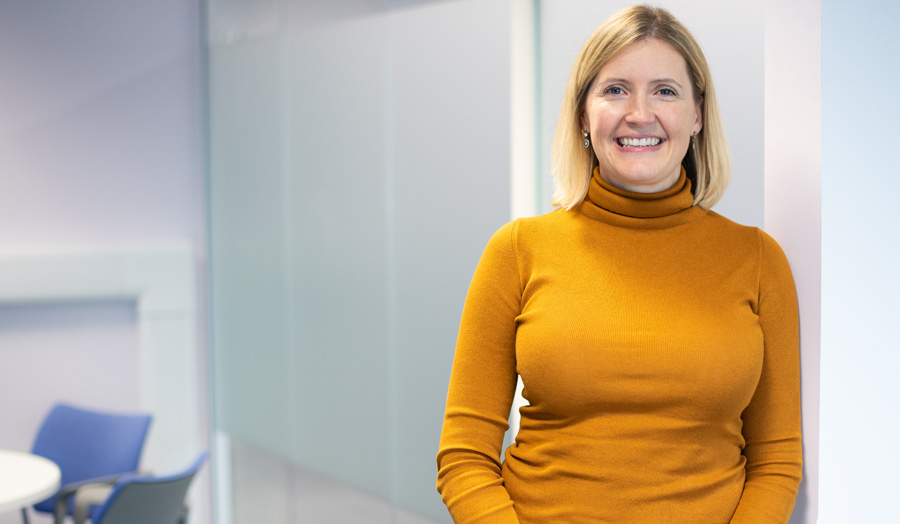This has been shortened from an interview first published in the Department of Social Work’s publication, The Loop, conducted by co-editors Birungi Nakiwala and Nicola Williamson.
Please could you explain your role as a Deputy Vice-Chancellor, for those who may not be aware of what it is that you do?
My role is Deputy Vice-Chancellor and what that really means is that I look after and lead everything that students experience at the university. So that includes everything experienced in each of the university's different schools (for example, the School of Social Work), all the student services such as financial and mental health support, the regulations for each of the degrees for example the pass-level and degree outcomes, academic registry and quality assurance. I support the research carried out by research-active members of staff and I also drive forward the university's equality and diversity agenda. I suppose the easiest way to explain it, is that everything that students experience whether it's teaching, learning, student support, and the quality of everything, is what I look after!
Who is your greatest inspiration and why?
I have had people in my life who have influenced, inspired, and championed me to do important work, so I cannot name one person. Although I am inspired by famous people, I am mostly inspired by people throughout my life. There is a saying that goes ' people will forget what you say and do but they never forget how you make them feel'. I remember I had this mentor named Andrew Rodgers who I've worked for when I lived in Wales. Andrew got me to focus on my values as someone in leadership and what might be non-negotiables. Andrew is someone who always did the right thing by people and I learned a lot from him. Andrew gave me the confidence I needed to be myself and to really care about people in my leadership role.
When I think about who inspires me at London Met to do better, it would be people like Zainab Khan. Reading and listening to people like Zainab made me more aware of my white privileges. The other person is Donna Jones who is doing phenomenal work to change social work practice. I am also inspired by writers such as Kalwant Bhopal who wrote the book called White privilege: The myth of a post-racial society and Reni Eddo-Lodge who wrote about race in her book called “Why I'm No Longer Talking to White People About Race.” I want to help people and I am drawn to people who want to challenge the status quo and do the right thing.
What long-lasting changes to UK higher education has the pandemic brought and how will these changes affect the Department of Social Work?
At the beginning of the pandemic, everything happened very quickly. I had to work on shutting the university down in about five minutes and I think everyone did a brilliant job despite the circumstances. We thought the closure was going to be for a couple of months but instead, it lasted longer. The long-lasting change is that things are not going to go back exactly how they were. Therefore, once we get out of the pandemic we are building a blended module that will give students more flexibility, for example, let's say some students cannot go into the university on a Tuesday because their child is unwell, we will record some of the sessions.
Previously, all of our staff used to go onsite all the time, even our finance team. The question is, do our finance team really need to go in every day? No. I think because of the pandemic we learn to be more tolerant and caring towards each other and respectful of the different challenges we each face. I think the students have done a fabulous job of appreciating the difficult circumstances staff members are in and vice versa.
What advice would you give to students who are finding it difficult to cope during the pandemic?
I will start by saying that I am in a privileged position. I am in full-time employment, I am not studying, and have the security of a job and an income. Yet, sometimes I find it really hard to balance. The majority of our students are parents and work part-time and even though I find it hard it is even ten times harder for them.
What I would say to students who are finding it difficult to cope is to lean on the university support and keep on going. They should also speak to their peers, staff members, or anyone who inspires them to finish their course. I can assure you that once you are finished, it will change your life. Although sometimes it will seem difficult because of the pandemic it will be well worth it in the end. I say grit your teeth, do your best to get through it, whether it means you have to pause a little bit or take longer to complete, it doesn't matter as long as you finish.
What is your vision for London Met in the next ten years?
Our vision really is to have an even more significant impact on changing the lives of the communities, students, and the staff we serve. Building on that, we are absolutely committed to inclusion equity and eradicating the equity that exists within our organisation and other organisations.
For example, if we train our trainee social workers to be inclusive in practice then they will go out from London Met and make other organisations inclusive. It is like a ripple effect. Another vision is to make London Met a beacon for eradicating inequity and inspire students and staff to continue to do so, in their own organisations'

